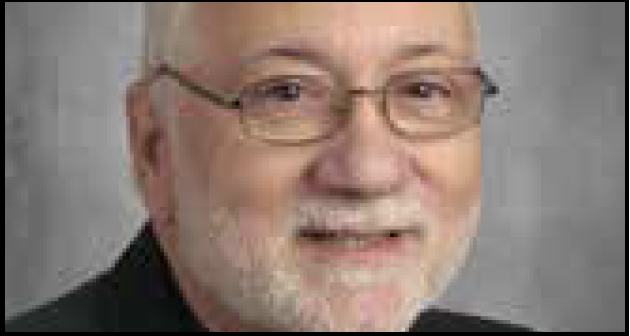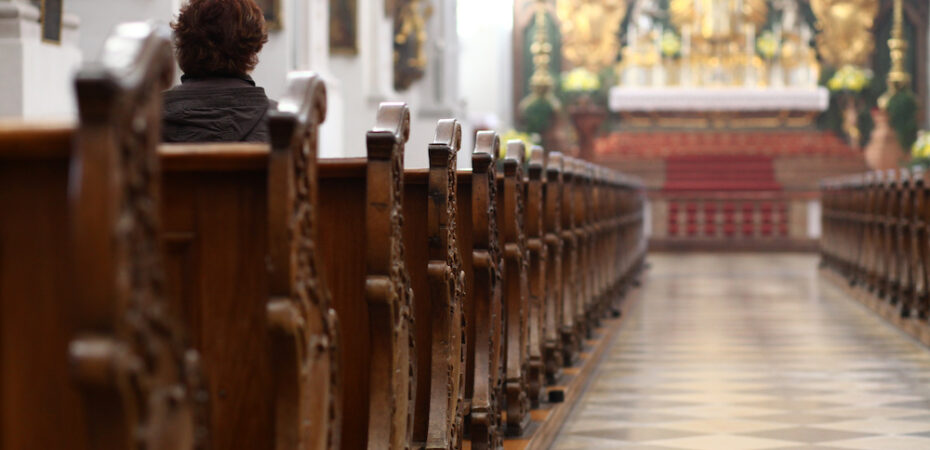The Church of the Future
What can we deacons do to effect change for the better
Deacon Dominic Cerrato Comments Off on The Church of the Future
 The Church of the future lies in the present. This observation may seem rather apparent, so much so that it can be easily dismissed. Indeed, all things move chronologically from the past into the present, and from the present into the future. However, within this obvious reality lies a profound truth — namely, what we do today has, to a greater or lesser extent, an impact on what happens tomorrow. Understood this way, past, present and future aren’t three independent things, but three distinctive parts of the same reality forming one sole organic path in which freewill plays an essential albeit limited role.
The Church of the future lies in the present. This observation may seem rather apparent, so much so that it can be easily dismissed. Indeed, all things move chronologically from the past into the present, and from the present into the future. However, within this obvious reality lies a profound truth — namely, what we do today has, to a greater or lesser extent, an impact on what happens tomorrow. Understood this way, past, present and future aren’t three independent things, but three distinctive parts of the same reality forming one sole organic path in which freewill plays an essential albeit limited role.
Bearing this in mind, we might ask a few important questions. What will the Church, on the parish level, look like 10, 20 or even 100 years from now? More to the point, what can we do as deacons to effect a change for the better and advance this mission to which we’ve been entrusted?
To begin grappling with this question, we would do well to consider the observations of a young Bavarian theologian, Father Joseph Ratzinger. In a 1969 broadcast on German radio, the future Pope Benedict XVI spoke prophetically of a future where the Church would be smaller. Bear in mind that at the time he spoke the Church was still in the honeymoon stage of the Second Vatican Council. Priestly and religious vocations were strong, and pews were full.
Nonetheless, the Church was already experiencing a kind of crisis of faith as witnessed by the release of Humanae Vitae and the public dissent by some theologians. Bubbling beneath the surface and fueled by a moral relativism expressed by the sexual revolution, the Church was faced with a new threat. In the midst of this, Father Ratzinger wrote:
“From the crisis of today the Church of tomorrow will emerge — a Church that has lost much. She will become small and will have to start afresh more or less from the beginning. … As the number of her adherents diminishes, so it will lose many of her social privileges. … But in all of the changes at which one might guess, the Church will find her essence afresh and with full conviction in that which was always at her center: faith in the triune God, in Jesus Christ, the Son of God made man, in the presence of the Spirit until the end of the world.”
Father Ratzinger’s words are as true today as the day he spoke them. They reveal a profound and powerful insight — namely, that the Church will discover herself anew and be renewed as a simpler and more spiritual reality. Indeed, just as the greatest sin brought about a singular act of redemption, so too will today’s crisis be the catalyst to a purified Church. In this, we see the Cross and the Resurrection reflected in our own time, entering into the drama of our own lives and calling us to an ever deeper commitment to our vocations. Picking up this theme and reinforcing Ratzinger’s insights, Pope Francis said, “It will be a Church that is more spiritual, poorer, and less political; a Church of the little ones.”
I believe the rise of the diaconate is one of God’s ways of preparing the Church for this future. May we stay steadfast in faith and bear witness to Christ the Servant no matter what comes.
DEACON DOMINIC CERRATO, Ph.D., is editor of The Deacon and director of diaconal formation for the Diocese of Joliet, Illinois. He is the founder of Diaconal Ministries, where he gives national presentations and retreats to deacons and diaconal candidates.





